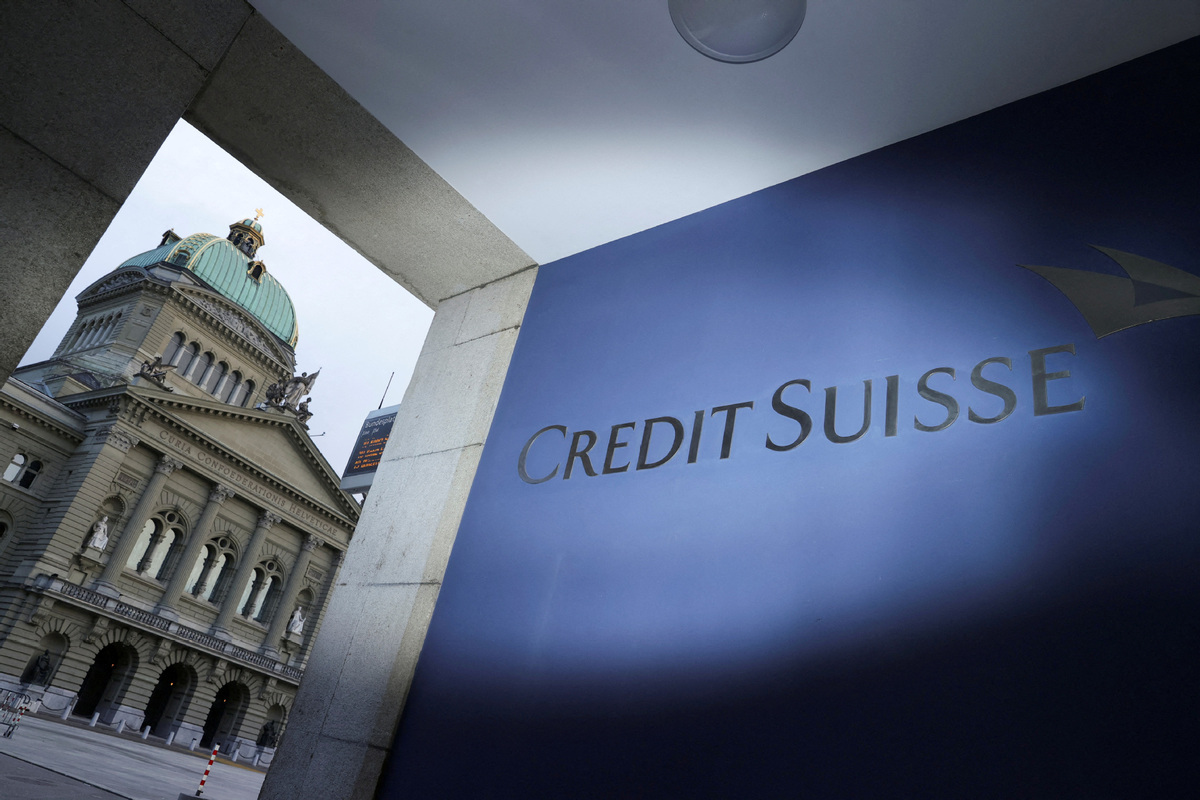Bank bailouts make one wonder if 'this time is different' indeed


Swiss lender Credit Suisse reached a historic agreement with UBS over the weekend whereby the latter will acquire it for 3 billion Swiss francs ($3.22 billion).
The crisis-stricken Swiss bank, which peaked in 2007 with a market capitalization of nearly 100 billion Swiss francs, was among the least affected by the subprime crisis. However, its shares tumbled drastically last week, reducing its market value to a little more than $7 billion. Credit Suisse's shares fell alongside those of other banks and stock markets in the United States and European countries, as well as declining prices of commodities such as oil. At least four large banks, such as Societe Generale and Deutsche Bank, have placed restrictions on transactions involving Credit Suisse or its securities.
In recent years, Credit Suisse has been embroiled in money laundering and investment failures leading to huge financial losses. When an Australian journalist reported in October that a major investment bank was on the verge of bankruptcy, the market speculated Credit Suisse would become the next Lehman Brothers. Since then, Credit Suisse has struggled to save itself, selling fixed assets at fire-sale prices, scaling back investment, and closing most of its prime brokerage business.
Amid mounting client concern, Credit Suisse saw outflows of more than $100 billion toward the end of 2022. Several major US banks, including J.P. Morgan Chase, Bank of America, and Citigroup, continue to reduce direct risk exposure to Credit Suisse.
Expectedly, the market has welcomed news of Credit Suisse's acquisition by UBS, presided over by Switzerland's central bank and witnessed by the European Central Bank and the US Federal Reserve. The Swiss National Bank claimed the rescue will "ensure financial stability and protect the Swiss economy".
As various parties were trying to bail out Credit Suisse, Europe and the US were busy assuring people their banking systems were safe.
However, the UBS's acquisition of Credit Suisse seems to have done little to ease market concerns. Last week, the US' big banks provided $30 billion in liquidity to smaller First Republic Bank, and US banks turned to the Fed for $153 billion in emergency liquidity, even higher than at the height of the financial crisis in 2008. Are these quick and efficient bailouts creating a skylight for new moral hazards? It is such moral hazards that bear the bitter market fruit. "This time is different" seems to be the perfect story before every crisis actually arrives.
— Beijing News


































